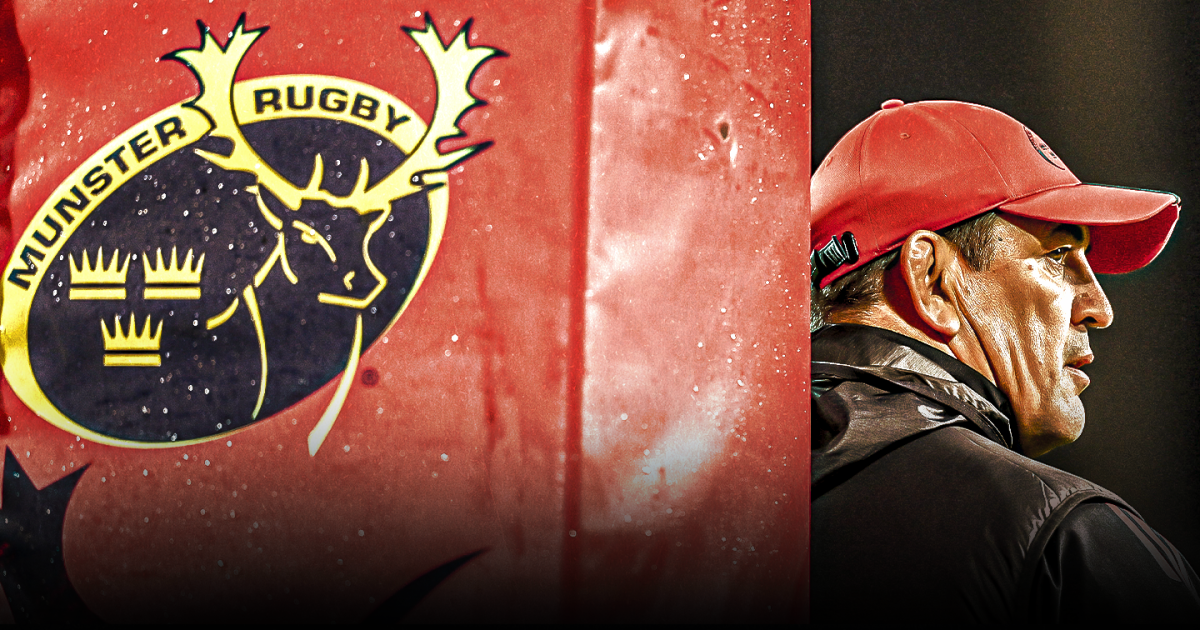The 19th century editor of the New York Tribune, Horace Greeley, once famously implored the youth on the east coast to find their fortunes in the unexplored west of the country: “the rents are high, the food is bad, the dust is disgusting and the morals are deplorable. Go west, young man, go west and grow up with the country, where there is room away from our crowds of idlers and imbeciles.”
In the rugby world, the translation is ‘go north, young man’ – or for the likes of Irishman Ronan O’Gara, ‘go south’. Find your fortune, and grow your identity in the opposite hemisphere, because that is where you will find your very own coaching gold rush. One of the main drivers of success for international coaches in the professional era has been exposure on both sides of the equator.
Think Sir Graham Henry and Sir Steve Hansen with Wales in the early noughties. Think Rassie Erasmus and Jacques Nienaber with Munster prior to their Springbok appointments in 2018. If you want to build a dynasty or leave a legacy, do your learning in two different worlds, because that is how it has been done by every World Cup winning coach for the past 15 years.
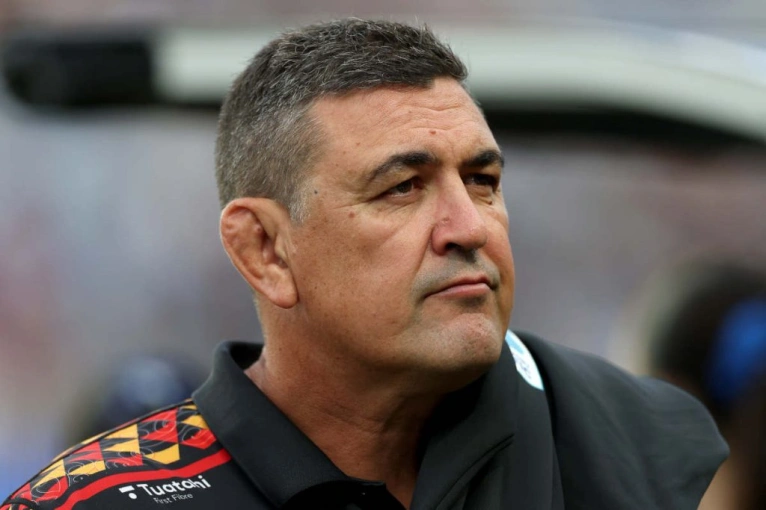 Clayton McMillan left the Chiefs for Munster this year to coach in the United Rugby Championship (Photo Phil Walter/Getty Images)
Clayton McMillan left the Chiefs for Munster this year to coach in the United Rugby Championship (Photo Phil Walter/Getty Images)
The most significant dynamic in New Zealand’s rugby development over the past 12 months has been whether to stay or go. Razor Robertson has chosen to stay home, and all of his coaching support group in the All Blacks are home-grown. Ex-Chiefs supremo Clayton McMillan’s decided to roll the dice and leave the comfort of Super Rugby for the URC. Instead of navel-gazing, McMillan has embraced a risk which can only improve his coaching capacity long-term.
McMillan sought the advice of notable others who had trodden the same path before accepting the role of head coach with Munster, such as the prolifically successful Joe Schmidt [Leinster] and current Super Rugby champion Rob Penney [Munster]. He has come to the west of Ireland to hit the sweet spot for an established coach, where he is learning as much as he is teaching
“There have been a number of people I have spoken to, just to get guidance around Irish culture. What am I walking into? What am I likely to expect?
“I ask the players for feedback at the end of [every] training [session]. The session may have gone really well, but the Irish way seems to be focusing on the three or four things which didn’t go well.
“Everyone tells me, ‘That’s the Irish, we’re glass half-empty!’ That’s not my view, I’m here to make Munster’s glass half-full. Hopefully, all the way full.
“We need to raise the floor instead of raising the bar. My job is to empower players and get as many Munster players into green jerseys as possible.”
The theme has been to provide continuity with the past while disrupting the present, and the process so far has been, to use hooker Niall Scannell’s word, “organic”.
“There is a lot of good stuff being done here, everything we are doing well I don’t find any reason to disrupt,” McMillan said. “But it’s also my job to be a little bit of a disruptor. To bring a new set of eyes, to look at things differently, to challenge the ways things are being done.”
What a win like that is all about!
Thank you for the unbelievable support in Dublin ❤️#SUAF 🔴 | #LEIvMUN pic.twitter.com/HOvy73OeI9
— Munster Rugby (@Munsterrugby) October 19, 2025
McMillan has entered stage left, but right in the middle of a natural interval in Munster’s rugby history, with icons of the past decade in Peter O’Mahony and Conor Murray leaving just before the Perth-born supremo arrived on the scene. The former police officer is in at the start of a new phase of rugby in Limerick and primed to make the most of his opportunity, having led the Chiefs to three Super Rugby finals in four seasons since being appointed head coach in 2021.
The stars may have aligned, but it is one thing to see the door opening in front of you, and quite another to walk through it. The crunch moment in McMillan’s new career was always going to come as early as round four, as the age-old enmity with interpro rivals and URC champions Leinster was revived at Croke Park. The size of the challenge was encapsulated by Leo Cullen’s decision to pick 12 of this year’s British and Irish Lions in his matchday 23. And that is before you include 6ft 10ins two-time world champion RG Snyman.
McMillan already had his gaze firmly fixed on that key local derby when he took the job: “I just wanted to make it a dogfight. If you sit and wait and sort of give [Leinster] a moment to impose their game on you, then you’re going to be losing. We needed to be in the scrap for everything and wanted to be the hunter, not the hunted.”
McMillan brought many archetypal New Zealand coaching principles to the table, a number of which have gone missing during Robertson’s national tenure so far. McMillan’s Chiefs were always at home in high-tempo, high-ball-in-play encounters, averaging almost 38 minutes of ball-in-play in Super Rugby Pacific 2024 [second in the league]. The game at Croker was even faster and more furious with over 41 minutes of BIP, and that suited McMillan’s Munstermen down to the ground, quite literally.
Clayton’s Chiefs featured six different players among the top 20 breakdown pilferers in SRP 2025: back-row Luke Jacobsen with eight and hybrid Naitea Ah Kuoi with five up front; but the most startling statistic was the number of turnovers on the deck won by backs – six flowed through centre Quinn Tupaea, and back threes Emoni Narawa, Shaun Stevenson and Leroy Carter all contributed five apiece.
Breakdown pressure is field-wide on a McMillan team, and Munster dug deep into Leinster ruck retention, frequently firing two or three men into rucks and jackals alike, and winning nine turnovers in all. When you are turning over one in every 13 of the opponent’s rucks, any semblance of an attacking game begins to fall apart.
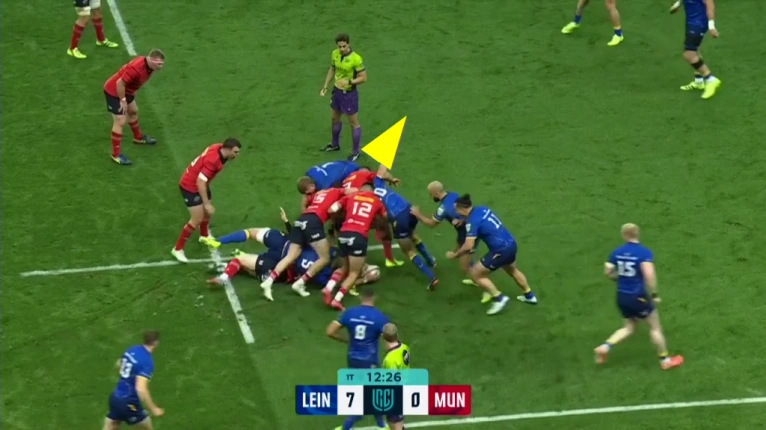
McMillan had all the tools he needed to disrupt the breakdown and create turnover ball, with Lions man of the series Tadhg Beirne claiming four steals on his own, and ex-Chiefs man Alex Nankivell coming off the pine to add another two.
On attack, the Chiefs averaged over eight offloads per game in this year’s SRP – ranking third in the competition – and Munster had already made 10 before the half-hour mark in Dublin. It was in that period Munster effectively put the result beyond doubt.
McMillan’s men doubled up on their offloads to create width, first through the combination of 10 Jack Crowley and centre Tom Farrell off one of the kick return opportunities Razor tends to neglect.
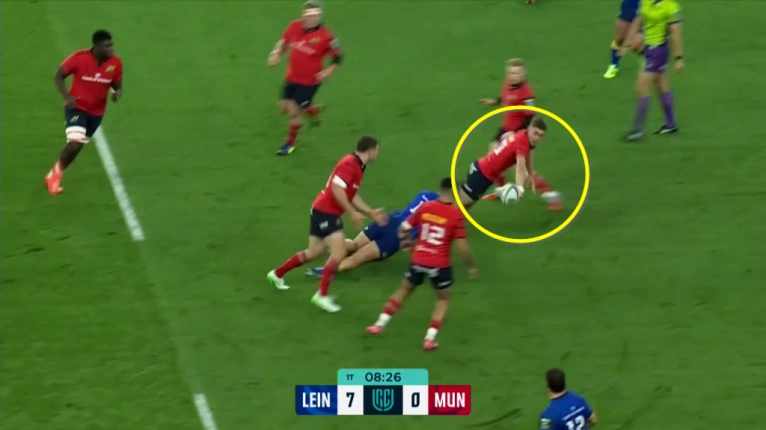
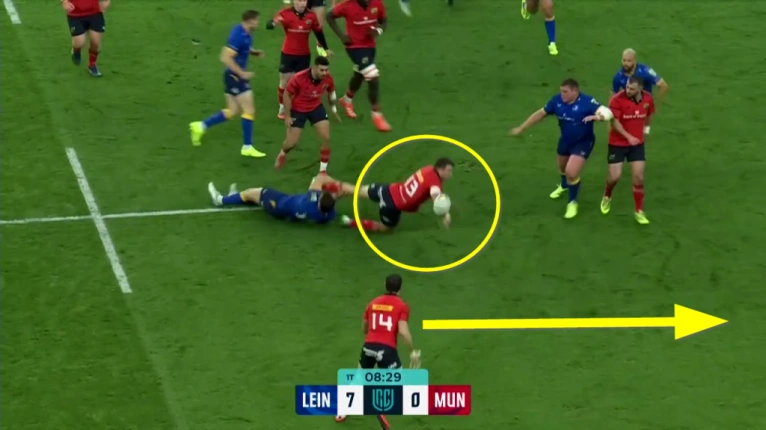
A few minutes later, the ‘double offload’ principle was working to Munster’s advantage again, with Crowley and Nankivell combining to beat the Leinster blitz and put quicksilver South African wing Thaakir Abrahams away down the left.
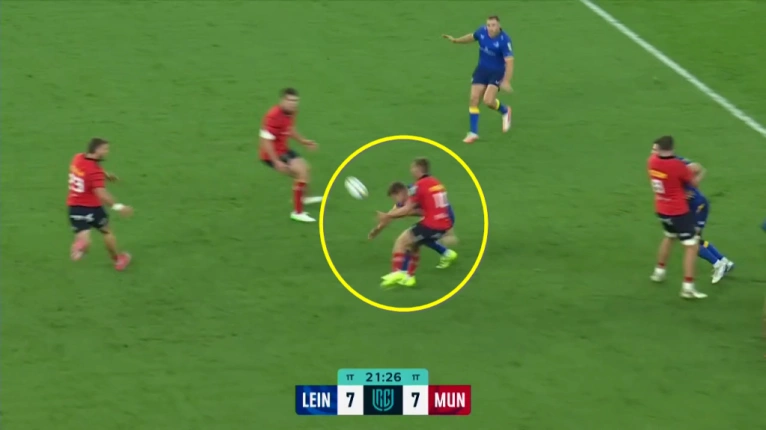
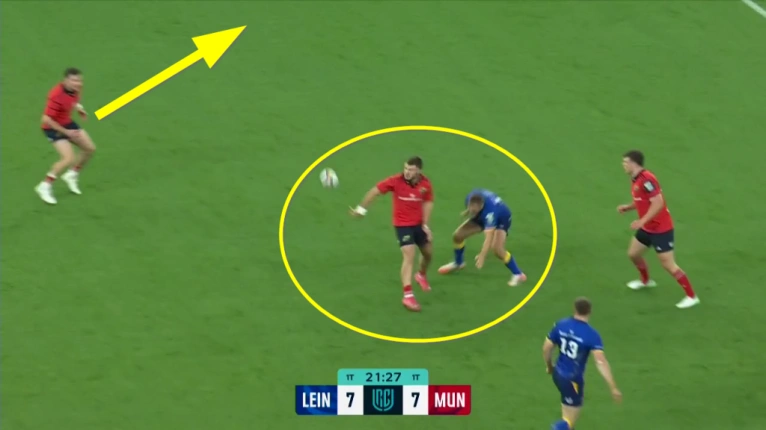
Abrahams delivered the coup de grace in the 77th minute, from another kick return.
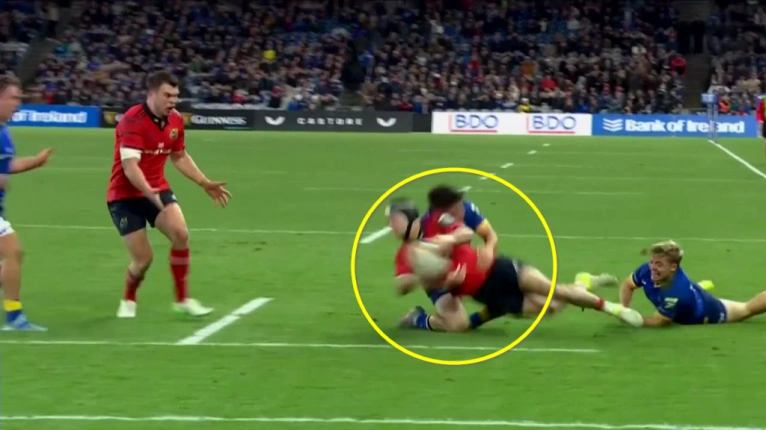
McMillan is already developing a razor-sharp attacking relationship between outside-half Crowley and centre Farrell, and it bore fruit throughout the match, not least via the kicking game.
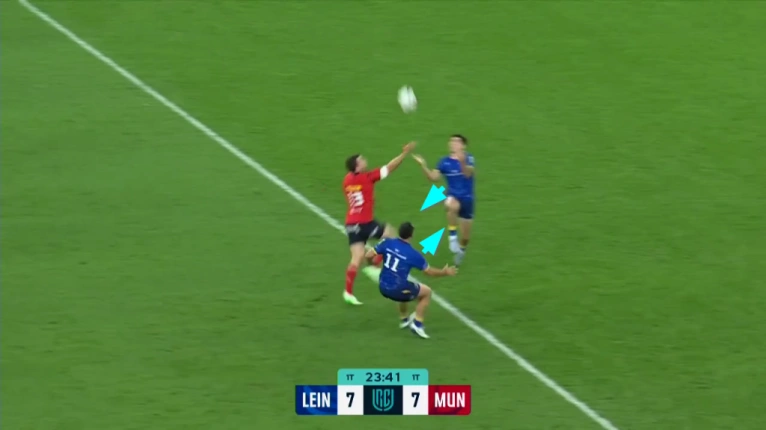
On three occasions, Munster chipped with success into a space behind the defending 13 Leinster could not cover from their backfield, and this time Farrell was able to regather Crowley’s kick over Jimmy O’Brien and James Lowe to score a spectacular try.
McMillan has followed the advice of Horace Greeley to ‘go west, young man’, and grow up as a coach in the unblemished country around the west of Ireland in Limerick and Cork. In the longer term, he and New Zealand rugby will benefit from the move. In the short term, his new charges are already sitting pretty atop the URC table with a 4-0 record.
If his blueprint was good enough to beat Leinster and their 12 Lions, why is not good enough for the All Blacks? Exploring the opposite hemisphere to reinvigorate your rugby teaching is a proven strategy. Ask Shag, or Ted, or Rassie. Go west, young man. Or north. Or south. Anywhere but home.

